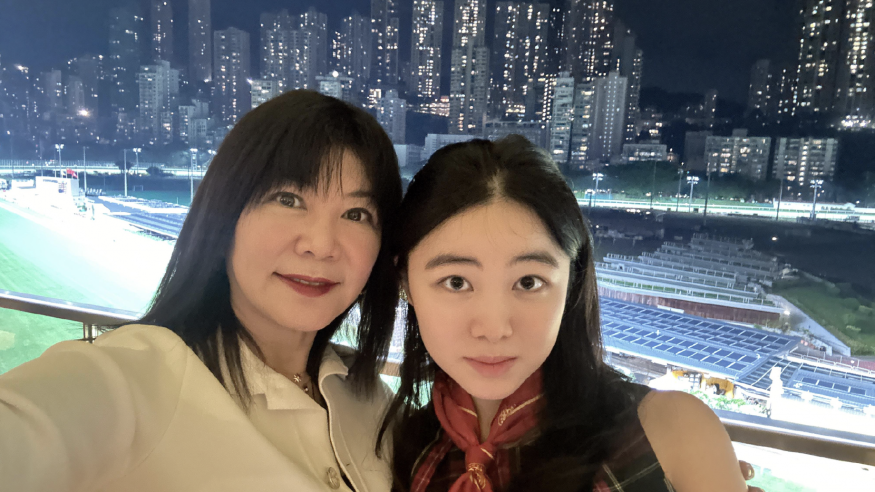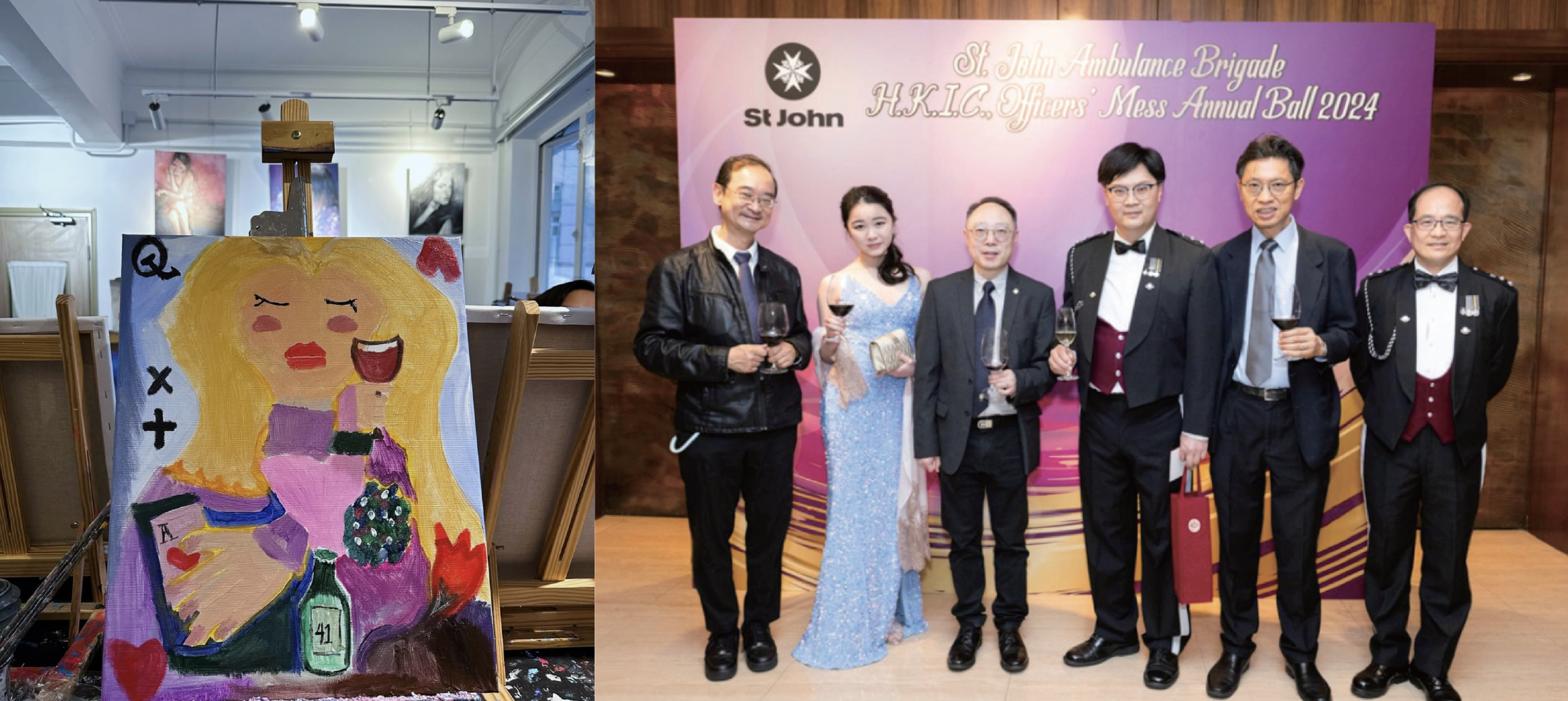Rosacea and Asian representation: building inclusive awareness of skin health
14 February 2025
Dr Chloe Cheung (PgDip 2023, Practical Dermatology 2024-) is a Primary Care Doctor with a special interest in dermatology. Together with a group of multidisciplinary professionals, she has founded the charity Asian Rosacea Society to help misdiagnosed patients like her mother.
As a recent graduate of Cardiff University’s Diploma in Dermatology, I recently established the Asian Rosacea Society, a new member of the British Chamber of Commerce in China. With this platform, I aim to advance education and provide psychological support to Asians with rosacea – a chronic skin condition characterised by facial redness, visible blood vessels, and in some cases, acne-like bumps. I believe that one day, no one will be left in the shadows because of their skin colour.
My work is also dedicated to my mother, who was diagnosed by yours truly. Perhaps from her exquisite taste for red wines and occasional liking for chocolate, she had developed flares of classic rosacea. Initially these were dismissed as ‘eczema’, ‘allergies’, and ‘alcohol intolerance’, but the temporal relationship seemed all too coincidental. So, I dedicate this to my mother, as a labour of love, and in the hopes that those who have the same problem could have a safe community for support.
Traditionally, rosacea has been associated predominantly with Caucasians, leading to a lack of comprehensive research on how this manifests in other ethnic groups, particularly among Asians. This gap in dermatological awareness and education often results in misdiagnosis and inadequate treatment for Asian patients – my mother being a case in point.
Our understanding of rosacea in Asians is often limited by underrepresentation in clinical studies. The perceived rarity of the condition in Asian populations may contribute to this oversight, however the reality is that rosacea can and does affect individuals of Asian descent (albeit potentially in different ways). For instance, while redness and flushing are classic symptoms of rosacea, these can be more challenging to detect on darker skin tones. Instead, patients may experience persistent itching and burning of the face, and these symptoms may be mistaken for conditions such as acne vulgaris or eczema.

Education plays a critical role in dismantling these misconceptions – so I recognise the importance of patient education and empowerment in my work. The Asian Rosacea Society seeks to develop materials and workshops that help patients understand their condition, manage symptoms effectively, and seek appropriate care. A further aim is to organise cross-collaborations with local societies and charities, such as Hong Kong St. John Ambulance.
I am so grateful to Cardiff University for equipping me with the knowledge and skills to undertake this important mission. By providing a platform for individuals to share their experiences and connect with others who face similar challenges, we can break the silence surrounding rosacea in Asian communities. And through promoting diverse research and creating a supportive network, we strive to elevate the standards of care.
For more information and collaboration opportunities, you can follow the Asian Rosacea Society here and visit their new website here.
Ready to connect with fellow Cardiff alumni like Chloe? Join the official LinkedIn network.
- January 2026
- November 2025
- September 2025
- July 2025
- June 2025
- May 2025
- April 2025
- March 2025
- February 2025
- January 2025
- October 2024
- September 2024
- August 2024
- July 2024
- June 2024
- May 2024
- April 2024
- March 2024
- February 2024
- January 2024
- December 2023
- November 2023
- October 2023
- September 2023
- August 2023
- July 2023
- June 2023
- May 2023
- April 2023
- March 2023
- February 2023
- January 2023
- November 2022
- October 2022
- September 2022
- August 2022
- July 2022
- June 2022
- May 2022
- April 2022
- March 2022
- February 2022
- January 2022
- December 2021
- November 2021
- October 2021
- September 2021
- August 2021
- July 2021
- June 2021
- May 2021
- April 2021
- March 2021
- February 2021
- January 2021
- December 2020
- November 2020
- October 2020
- September 2020
- August 2020
- July 2020
- June 2020
- May 2020
- April 2020
- March 2020
- January 2020
- December 2019
- November 2019
- October 2019
- September 2019
- August 2019
- July 2019
- May 2019
- April 2019
- March 2019
- February 2019
- January 2019
- December 2018
- November 2018
- October 2018
- September 2018
- August 2018
- July 2018
- June 2018
- May 2018
- April 2018
- March 2018
- February 2018
- December 2017
- November 2017
- October 2017
- September 2017
- August 2017
- July 2017
- June 2017
- May 2017
- April 2017
- March 2017
- February 2017
- January 2017
- November 2016
- October 2016
- September 2016
- July 2016
- June 2016
- May 2016
- April 2016
- March 2016
- February 2016
- January 2016
- December 2015
- November 2015
- October 2015
- September 2015
- August 2015
- January 2015
- December 2014
- November 2014
- September 2014
- August 2014
- May 2014